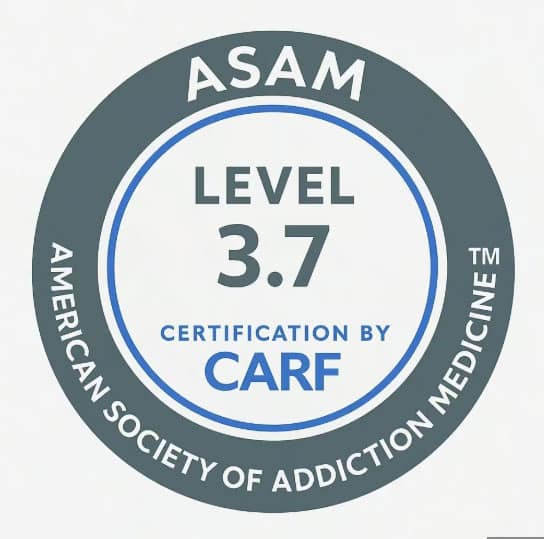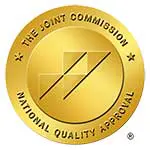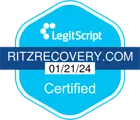Speak to an Admissions Specialist Today!
Call us at (888)-680-1356 or fill out a confidential form.
If you’re asking, ‘How do I pay for addiction treatment?’, there are many ways to cover the costs. Options include private insurance, financing, government assistance, and more. This guide will help you understand these methods, making it easier to find a solution that works for you.
When considering private health insurance, it’s important to review your specific insurance plan, discuss treatment options with your insurance carrier, and confirm which treatment centers are in-network to maximize your benefits and minimize out-of-pocket costs. Understanding what is covered by insurance is crucial, as coverage for addiction treatment can vary significantly depending on your specific plan.
Key Takeaways
- Addiction treatment costs vary widely based on factors like program type, facility quality, and treatment duration, with inpatient programs averaging between $6,000 to $30,000 for 30 days.
- Private health insurance, Medicaid, and Medicare can significantly reduce out-of-pocket expenses for addiction treatment, making it crucial to understand and leverage available coverage.
- Various financing options, including personal loans, payment plans, crowdfunding, and scholarships, can help bridge the financial gap for individuals seeking addiction treatment.The average duration of drug rehab in Los Angeles typically ranges from 30 to 90 days, influenced by addiction severity, co-occurring disorders, and insurance coverage.
Introduction to Mental Health and Treatment

Mental health services administration is at the heart of supporting individuals facing mental health conditions and substance use disorders. Navigating addiction treatment can feel overwhelming, but understanding your options is the first step toward recovery. Treatment centers across the country offer a variety of services designed to address both mental health and substance use, ensuring that each person receives care tailored to their unique needs.
Private health insurance plays a significant role in making treatment more accessible. Many insurance providers, including United Healthcare and other major insurance companies, offer coverage for addiction treatment and mental health services. Thanks to the Affordable Care Act, insurance plans are now required to cover addiction treatment and mental health services as essential health benefits, making it easier for individuals to access the care they need. However, it’s important to review your specific insurance plan, discuss treatment options with your insurance carrier, and confirm which treatment centers are in-network to maximize your benefits and minimize out-of-pocket costs.
When considering treatment, look for a treatment center that offers a range of treatment programs, such as residential treatment, partial hospitalization, and outpatient services. Many treatment centers provide payment assistance, financing options, and sliding fee scales to help manage the cost of rehab. These options can make effective treatment more affordable and accessible, regardless of your financial situation.
It’s also helpful to know that many treatment centers offer specialized programs, including opioid treatment programs and support for family members. The Substance Abuse and Mental Health Services Administration (SAMHSA) is a valuable resource, offering a treatment locator tool and information on substance use disorder treatment providers. By working with a knowledgeable treatment provider and understanding your insurance coverage, you can find the right support for your mental health condition and substance use disorder.
Remember, seeking help is a sign of strength. With the right treatment options, insurance coverage, and support from family members and professionals, recovery from addiction and mental health conditions is possible. Don’t hesitate to reach out to a treatment provider or your insurance company to discuss your options and take the first step toward a healthier future.
Understanding the Cost of Rehab

The cost of rehab can vary widely, influenced by factors such as the type of treatment, duration, and the quality of the facility. On average, addiction treatment costs around $13,475, but this can fluctuate significantly depending on the specifics of the treatment program chosen. Inpatient rehab programs, which provide residential treatment, typically cost between $6,000 to $30,000 for a standard 30-day program. These programs often include comprehensive care, but the level of care required can drive costs higher.
Outpatient programs, on the other hand, tend to be more affordable, ranging from $2,000 to $10,000 based on the intensity and length of treatment. The geographical location of the rehab facility also plays a significant role in determining costs, with areas that have higher competition among treatment centers generally offering lower prices.
High-quality rehab centers with luxury amenities can charge upwards of tens of thousands per month. Some facilities also require admission fees ranging from $3,000 to $4,000, and optional therapies can increase the total cost. Being aware of these factors helps in better anticipating the financial commitment for addiction treatment.
Using Private Health Insurance
Private health insurance can significantly reduce the out-of-pocket costs associated with treatment for substance use disorders. Specifically, Preferred Provider Organization (PPO) plans provide mental health & substance abuse coverage. It is essential to explore your payment and health plan options to understand the financial support available for your treatment needs.
Contacting your insurance providers will help verify whether addiction treatment is covered by your insurance plan and clarify any potential limitations. Some insurance providers may require prior authorization for certain treatments or medications, so obtaining this approval is important before starting treatment. Additionally, it’s important to check if your plan will cover addiction treatment.
For personalized assistance with mental health and substance use insurance coverage, visit the official HHS Mental Health and Substance Use Insurance Help page. Get expert guidance to understand your benefits, navigate insurance claims, and access the treatment you need today.
Ritz Recovery only accepts PPO and Private Pay, highlighting the importance of understanding the specifics of your insurance coverage before committing to a treatment center. This helps maximize your benefits and minimize out-of-pocket expenses for addiction treatment.
Financing Options for Treatment
When private health insurance isn’t enough to cover the cost of addiction treatment, various financing options can help bridge the gap. Personal loans are a common choice, allowing individuals to finance their treatment expenses and pay them back over time. Home equity loans are another option, providing a source of financing that can be used for addiction treatment services.
Many treatment centers offer flexible payment plans, enabling patients to pay for their treatment in manageable monthly installments. Sliding-scale fees based on a patient’s income can also make addiction treatment more affordable, as some providers adjust their fees to accommodate different financial situations.
Additionally, credit card payments are accepted by many treatment centers, offering another way of paying to cover rehab costs. Exploring these payment options and financing options helps find a solution that fits your financial situation and ensures you receive the necessary treatment.
Medicaid and Medicare for Addiction Treatment
Medicaid and Medicare provide substantial support for those seeking addiction treatment. Medicare coverage includes:
- Part A: Covers inpatient hospital stays related to addiction treatment
- Part B: Covers outpatient services
- Part D: Offers drug coverage for outpatient prescription medications related to mental health treatments
Medicaid is a government-funded insurance program designed for low-income families. Since the implementation of the 2010 Affordable Care Act (ACA), commonly referred to as “Obamacare,” insurance providers—including Medicaid—are required to cover all essential components of drug and alcohol addiction recovery.
While Medicaid covers substance abuse treatment, not all facilities accept Medicaid as a form of payment.
The Affordable Care Act’s Impact
The Affordable Care Act (ACA) has had a profound impact on addiction treatment coverage. Marketplace health insurance plans are required to cover mental health and substance use disorder treatment as essential health benefits. This means that pre-existing conditions, including addiction, cannot be used to deny coverage or increase premiums.
The ACA also enforces parity between mental health and substance abuse benefits and medical/surgical services, ensuring that insurance plans provide equitable coverage for both. By promoting the integration of substance use disorder treatment with general health care services, the ACA has made it easier for individuals to access comprehensive care.
Policies under the ACA may cover 60 to 90% of rehab costs for addiction treatment, significantly reducing the financial burden on individuals seeking help.
Crowdfunding and Fundraising
Crowdfunding can be a vital resource for those facing financial barriers to addiction treatment. Creating a fundraiser on platforms like GoFundMe can help raise funds quickly and build a support network for recovery. Sharing a compelling personal story is beneficial when seeking donations, as it helps potential donors understand the urgency and importance of the cause.
Crowdfunding harnesses communal support to fund addiction treatment, alleviating financial challenges. Leveraging community support helps individuals gather necessary resources to cover treatment expenses and focus on their recovery, including support from family members.
State and Local Government Programs
State and local government programs offer a range of treatment services for addiction, including substance use treatment. These programs provide both inpatient and outpatient treatment options, often at reduced costs for special populations such as veterans and pregnant women. State-funded drug rehab centers prioritize individuals based on criteria like residency, income level, and treatment needs, ensuring that those who need help the most receive it. Additionally, they explore various treatment types to best address the needs of individuals seeking assistance from a treatment provider, including an opioid treatment program.
Financial assistance options are frequently available through state-funded programs and nonprofit organizations to help cover treatment costs. However, due to high demand, there is usually a waiting list for these programs. Exploring these options offers valuable support for those seeking to find treatment for addiction treatment.
Non-Profit and Faith-Based Programs
Non-profit and faith-based programs offer accessible addiction treatment services:
- Teen Challenge provides treatment for teens and adults at a nominal cost.
- The Salvation Army’s program requires no payment; participants work a 40-hour week for room and board.
- These programs typically last between 6 to 12 months, providing long-term support for recovery.
Not all faith-based programs engage in traditional treatment methods, so it’s essential to contact the program directly to understand their approach. Addiction charities can also provide community support and financial assistance through dedicated scholarships.
Researching various non-profit and faith-based programs helps individuals find suitable low-cost or free rehabs addiction treatment services.
Scholarships and Grants
Scholarships and grants can significantly reduce the financial burden of addiction treatment. Some facilities offer scholarship programs designed to assist individuals who require financial help. Additionally, third-party organizations provide rehabilitation scholarships to cover treatment costs.
Grants for rehabs can save multiple dollars in healthcare and legal costs for every dollar spent. SAMHSA provides the Substance Abuse Prevention and Treatment Block Grant (SABG), which supports addiction treatment for qualifying individuals such as pregnant and postpartum women and intravenous drug users.
Exploring these opportunities helps individuals find financial assistance to support their recovery journey.
SAMHSA Support
The Substance Abuse and Mental Health Services Administration (SAMHSA) plays a crucial role in providing support for addiction treatment. SAMHSA offers non-competitive block grants to states to support drug and alcohol treatment programs. Additionally, SAMHSA maintains a Directory of State Agencies to help locate state agencies involved in supporting addiction services.
SAMHSA also provides an online treatment locator tool that assists individuals in finding treatment options available in their area. Leveraging SAMHSA’s resources allows individuals to access valuable support and funding mechanisms for addiction treatment.
Immediate Mental Health Support
Immediate mental health support is essential for individuals experiencing a crisis. The 988 Suicide & Crisis Lifeline offers free crisis services 24/7 through calling, texting, or chatting online. The Crisis Text Line connects individuals in crisis with counselors via text message, providing immediate support.
Local community resources can be found through the SAMHSA National Helpline, which is available 24/7. Crisis centers in the Lifeline network provide mental health referrals and crisis counseling, ensuring that individuals receive the help they need quickly. These resources are vital for those in crisis to obtain immediate mental health support.
How to Navigate Denied Insurance Claims
Dealing with denied insurance claims can be frustrating, but several strategies can help navigate this challenge. If your claim for addiction treatment is denied, request a detailed explanation from your insurer to discuss treatment options. Insurance companies must share the standards used to deem treatment as not medically necessary.
If your claim is denied, you can take the following steps:
- Appeal the decision by providing proof of medical necessity.
- If the appeal is unsuccessful, you may have the right to initiate an independent review.
- File a complaint with your state’s insurance department, which can be an effective step if your claim is denied.
These strategies can help in successfully navigating denied insurance claims and securing the coverage you need from your insurance provider insurance carrier.
Finding the Right Treatment Center

Selecting the right treatment center is crucial for effective treatment addiction treatment. Evaluating your personal needs and substance abuse history will help determine the best facility for your recovery. Understanding different types of care, such as inpatient and outpatient options, is essential to ensure you receive the appropriate treatment.
If you have PPO insurance, Ritz Recovery stands out as one of the premier luxury drug and alcohol rehabs in Los Angeles.
When choosing rehab facilities, consider the following factors:
- Services and amenities, which can affect your comfort and recovery success
- Accreditations from recognized organizations, indicating the quality and reliability of a treatment center
- Credentials and expertise of the facility’s staff, crucial for receiving appropriate care
Reading reviews and testimonials can provide insights into the experiences of former patients at a treatment center. Thoroughly researching and evaluating these factors helps in finding the right treatment center to support your recovery journey.
Many treatment centers also offer continuing care services, such as outpatient support, therapy, and access to community resources. Continuing care plays a vital role in helping individuals maintain recovery and prevent relapse after initial treatment.
Additional Costs to Consider
When planning for addiction treatment, it’s important to consider additional costs beyond the primary expenses. Transportation costs to and from treatment sessions can emerge as hidden expenses during recovery. Extended periods of treatment may also incur extra costs beyond initial estimates.
Optional luxury services and experiential therapies at some rehabilitation centers may require additional payments. Anticipating these higher cost additional costs helps in better preparing financially for your service treatment journey and avoiding unexpected financial strain, especially when considering more amenities.
Summary
Paying for addiction treatment can be a complex process, but understanding the various options available can make it more manageable. From private health insurance and financing options to government programs and scholarships, there are many ways to fund your recovery journey. Exploring these options and planning ahead can help you navigate the financial aspects of addiction treatment and focus on your path to sobriety.
By leveraging the resources and support available, you can overcome the financial barriers to addiction treatment and take the necessary steps toward a healthier, substance-free life. Remember, the journey to recovery is a marathon, not a sprint, and every step forward is a victory worth celebrating.
Frequently Asked Questions
Addiction treatment typically costs around $13,475, though this amount can vary significantly based on factors such as the type of treatment, its duration, and the quality of the facility. It’s essential to consider these variables when planning for treatment.
Yes, private health insurance can cover a portion of addiction treatment costs, particularly with PPO plans. It’s essential to check the specifics of your coverage with your insurance provider.
Several financing options are available for addiction treatment, such as personal loans, home equity loans, flexible payment plans, sliding-scale fees, and credit card payments. Consider these alternatives to find a solution that best suits your financial situation.
For immediate mental health support, contact the 988 Suicide & Crisis Lifeline or the Crisis Text Line, and explore local community resources available through the SAMHSA National Helpline. These options can connect you with the help you need right away.
If your insurance claim for addiction treatment is denied, you should promptly request a detailed explanation from your insurer, appeal the decision with supporting documentation, and consider seeking an independent review or filing a complaint with your state’s insurance department.








